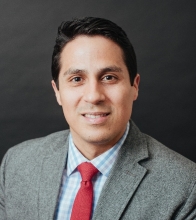CEE Seminar (ZOOM): Full Waveform Tomography of In Situ Geologic Materials Using High-performance Computing

Associate Professor and Graduate Coordinator
Department of Civil and Environmental Engineering
Temple University
Abstract: Current standards of practice for subsurface investigation can lead to an incomplete understanding of site conditions, particularly when the subsurface contains voids, irregular bedrock topography and/or highly variable stratigraphy. To address this issue, geotechnical engineers have increasingly used geophysical methods to measure the shear wave velocity (VS) as a proxy for stiffness of near surface strata. In particular, surface wave methods such as the Multichannel Analysis of Surface Waves (MASW) have been developed within the last few decades as the demand for rapid and accurate VS profiles has increased in many civil engineering applications. Surface waves are often the strongest signals obtained from seismic geophysical testing, which makes their acquisition less problematic. Surface wave methods extract the site-specific velocity-frequency dependency and utilize an inversion procedure to estimate a subsurface VS profile. However, care should be exercised with interpretation as there is an appreciable amount of uncertainty inherent in the measurements introduced during data post-processing. This presentation initially provides a discussion regarding the theoretical aspects of surface wave testing as well as the fundamentals of data acquisition and post-processing. Case histories are briefly presented to demonstrate the strengths and limitations of MASW in particular. Finally, a discussion is provided of recent advances using full waveform tomography with high-performance computing to increase resolution and better characterize the spatial variability of geologic materials.
Bio: Joseph Coe is an associate professor and graduate coordinator for the Department of Civil and Environmental Engineering at Temple University. Prior to joining Temple University, he was an assistant professor at The Citadel in Charleston, South Carolina. He obtained his civil engineering doctorate, master's and bachelor's degrees (with a geology minor) from UCLA. His career in geotechnical engineering spans 14 years primarily as a researcher with nondestructive and geophysical imaging systems, instrumentation and sensor technology, field experimentation and data acquisition, laboratory scale modeling and high-performance computing and simulations. Complementary areas of expertise include data analytics, signal processing, system identification, inverse problems and optimization, and physics-based stochastic modeling. His research interests predominantly relate to nondestructive and geophysical evaluation of natural hazards (bridge scour, karst, urban seismicity, landslides), reuse and rehabilitation of bridge foundations, sustainable geo-materials and use of big-data and artificial intelligence for modeling resiliency of infrastructure systems.
Share
Upcoming Events
-
MSE 298 Seminar: Molecular Modeling in the Age of AI - From Energy Materials to Device Simulations
-
CBE 298 Seminar: Metal Electrodeposition for Modern Mineral Refining
-
MSE 298 Seminar: Quasi-1D/2D Charge-Density-Wave Materials - From Exotic Physics to Application Prospects
-
EECS 394 Seminar: Steering Diffusion Models for Generative AI, From Multimodal Priors to Test-Time Scaling
-
CBE 298 Seminar: Finding Catalysts of Gut Reactions - The Gut Microbiota in Disease Onset and Treatment
